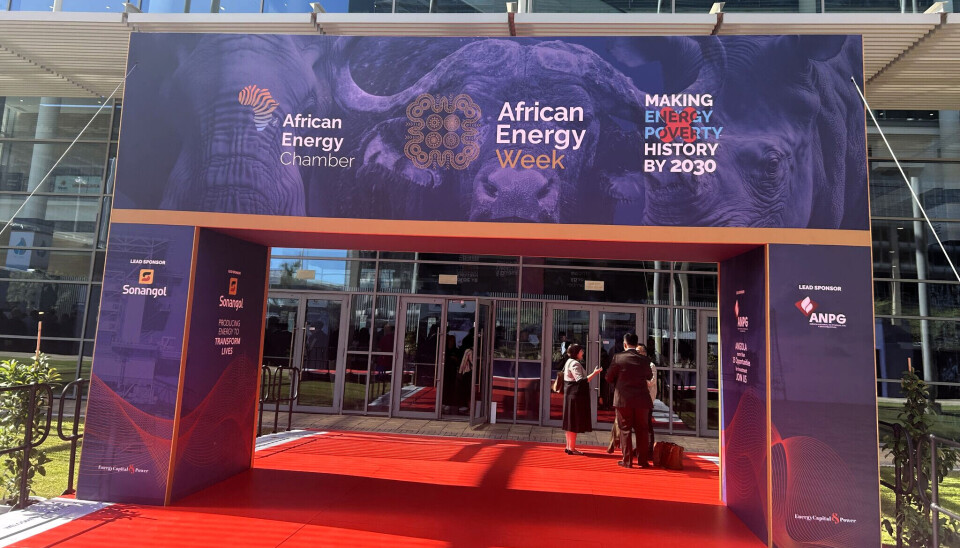Copyright : Re-publication of this article is authorised only in the following circumstances; the writer and Africa Legal are both recognised as the author and the website address www.africa-legal.com and original article link are back linked. Re-publication without both must be preauthorised by contacting editor@africa-legal.com
Highly anticipated AEW 2025 ignited with dynamic pre-conference array of workshops and forums

An interactive conference, exhibition and networking event, African Energy Week is being held in Cape Town across 29 Sept-3 Oct, bringing together energy leaders, global investors and executives to address the future of Africa’s energy industry. Today it kickstarted with a number of workshops and key forums
Before the four-day main conference for African Energy Week (AEW) begins on 30 September in Cape Town, a pre-conference array of investor forums and workshops was held today, providing a platform for companies to address challenges, secure investments, and foster partnerships across an evolving energy landscape.
This year’s AEW theme, “Invest in African Energies: Positioning Africa as the Global Energy Champion,” reflects the continent’s ambition to lead from the front. As the industry navigates increasingly complex regulatory, environmental, and commercial landscapes, the role of informed, agile legal counsel has never been more essential.
Today, as part of several pre-conference forums and workshops, the African Energy Chamber, International Energy Forum and S&P Global Commodity Insights hosted the Global Energy Leaders Roundtable, convening high-level stakeholders from G20 nations alongside African governments, global energy companies and financial institutions to explore actionable pathways for global collaboration and investment.
“In terms of the energy mix, Africa is still dominated by oil and gas and coal,” noted Ibra Ndiaye, partner at Forvis Mazars during the African Energy Insights & Masterclass, one of several key sessions today at AEW: Invest in African Energies 2025 pre-conference. The firm’s Powering Africa’s Future report, presented today, projects steady oil production growth across Africa in the coming years, even as renewable energy gradually increases its share within the continent’s energy mix.
“In countries like South Africa, we see renewables playing a very small role in relation to other countries around the world,” continued Ndiaye. “This imbalance presents a strategic opportunity for investment in clean energies.”
Other key sessions today included a session on Upstream Permitting Equals Downstream Development, hosted by EnerGeo Alliance; an interactive Oxford-style debate on Maximizing Africa’s Energy Empowerment, led by Wood Mackenzie; a workshop on The Practical and Legal Realities of Cross-Border Transactions in Africa, hosted by CLG, and OPEC leading a workshop on its World Oil Outlook.
“There are no signs of global oil demand peaking anytime soon in our outlook, and we need more investments and realistic future energy pathways,” said Dr. Abderrezak Benyoucef, Head of the Energy Study Department at OPEC, highlighting Africa’s growing role in the global energy ecosystem. “Africa will need more energy for economic development – not just electricity, but also to expand clean cooking access and improve health and education outcomes. LPG is one of the solutions.”
Investment and realistic energy pathways will be essential for Africa’s development, said OPEC in Cape Town today. “Africa will need more energy for economic development – not just electricity, but also to expand clean cooking access and improve health and education outcomes. LPG is one of the solutions.”
Presenting findings from OPEC’s 2025 World Oil Outlook, Dr Benyoucef noted that global primary energy demand is set to increase by 23% by 2050, with non-OECD countries accounting for nearly three-quarters of that growth. Africa alone is projected to add 4.2 million barrels per day (bpd) in incremental oil demand, while contributing around 3 million bpd to long-term global refining capacity.
According to OPEC, oil will retain the largest share of the global energy mix through 2050, while natural gas overtakes coal as the second-largest source.
Developing countries are expected to account for 75% of incremental electricity demand, underscoring the need for targeted investment in Africa’s power and downstream sectors. Dr. Benyoucef stressed $18.2 trillion in cumulative investments will be needed globally, including $14.9 trillion for upstream oil and gas projects. “We need all energy sources, but we also need emissions reductions,” he said, calling for the scale-up of technologies like carbon capture, utilisation and storage.
Over the next four days, industry leaders, government officials, CEOs, innovators, investors and key stakeholders will come together for networking, deal signings and discussions on “Positioning Africa as the Global Energy Champion.” Access the full agenda here.
